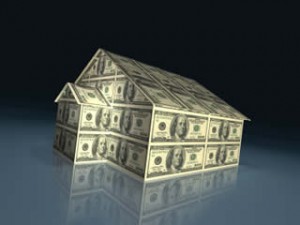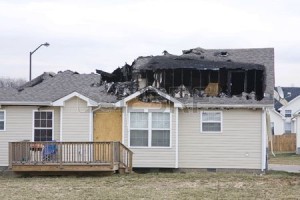One of the most common questions our office receives is: “Why does the insurance company say the market value of my home is much higher than it is actually worth?”
First, the questions is worded improperly. Not intentionally, but the problem is that the “market value” of your home has zero to do with the “Dwelling A” (or reconstruction cost) coverage listed on your declaration page. Or what most of us believe to be the “value” of our home.
So then how does it really work? My home is valued at $75,000, I owe $80,000 and the insurance company values my reconstruction at $239,000. For most of us, this doesn’t even make sense.
Let’s break this down properly:
Market Value: Market Value by basic definition states: “the amount in which something can be sold for in a given market”.
That definition is an all encompassing definition, but let’s explore what that really includes. A home located in Indianapolis Indiana vs the same exact home in Chicago, Illinois will not have the same market value. Why? The factors included in the “market value” include the area, the schools, the home itself, the price it can sell for at a certain period of time, the school systems, your specific improvements, etc. NONE of these factors that determine the MARKET VALUE of your home, are used to determine the “RECONSTRUCTION COST” of your home.
Reconstruction Cost: “provides the cost to construct, at current prices, an exact duplicate or replica of the building, using like kind and quality materials, construction standards, design, layout and quality of workmanship; Because it might be impossible, impractical or unacceptable to use the materials or methods used in the original construction, “equal quality and utility” may be substituted where necessary for “like kind and quality.”
In order to accurately determine the “Reconstruction cost” of your home we don’t just simply rely on figuring a guesstimate of what it would take to rebuild, but an actual defined process utilizing a specific Building Code Program analysis to obtain accurate information based on the home, your area, current building costs, etc. This program uses the accurate material cost and labor data to determine the actual cost to replace your home to its pre-loss condition. It costs much more to reconstruct a new home in an existing place then it does to construct a new home at a new location.
So now that you understand the difference, the question becomes, “Do I need to insure my home to the reconstruction cost that the carrier determines?”
The simple answer is, YES, you should. Here are 3 very good reasons why.
1. Insurance Companies have a contractual obligation to repair or replace the lost asset. One reason for this language believe it or not is to keep people from OVER insuring and then committing fraud to collect money. Replacement value determines what that amount should be.
2. Partial losses are more common then total losses. The reason this is important to understand is basic math. Let’s use the numbers we started with
- Insurance Purchased: 80,000 (to pay off mortgage)
- Square Footage of the home: 1684
- Reconstruction Cost figured: $239,000. ($141.92 per square foot (239000/1684)
If you suffered a loss on 1/4 of the home, that would be a $20,000 loss (80000 X 1/4), but the actual reconstruction costs would be $59,748. (1684 / 4 x 141.92). In this example you would have a shortfall of $39748.00 in order to rebuild your home. If you purchased the Reconstruction Cost, you would receive the full $59,748 to rebuild the 1/4 of the home to a pre-loss state.
3. The above example leads to the last reason. Social benefit. If this happens to your neighbor and he doesn’t have enough insurance to cover the repairs, it is likely that the home can become an eyesore, drive down the MARKET Value of your home, and create resale issues for you.
In a nutshell, make sure you understand the cost of purchasing replacement cost for your insurance has nothing to do with the value of your home. Don’t short change what is likely your largest investment so that in case of a loss you replace with far less quality or worse yet, not at all.
Understanding home insurance and how it is designed and what it pays is complicated. Don’t assume you understand what you are covered for because the worst way to find out is AFTER the loss.












Recent Comments